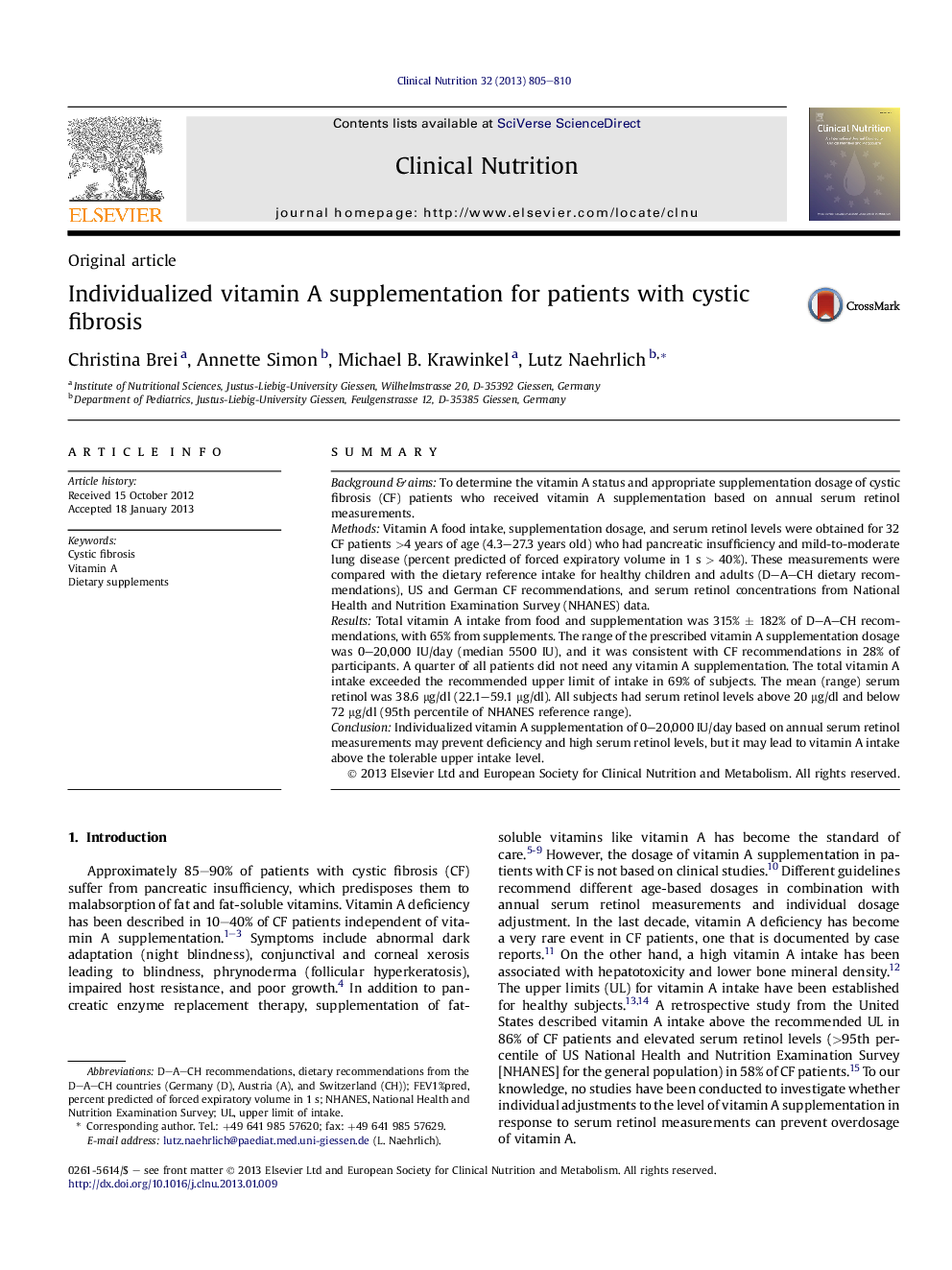| Article ID | Journal | Published Year | Pages | File Type |
|---|---|---|---|---|
| 2689616 | Clinical Nutrition | 2013 | 6 Pages |
SummaryBackground & aimsTo determine the vitamin A status and appropriate supplementation dosage of cystic fibrosis (CF) patients who received vitamin A supplementation based on annual serum retinol measurements.MethodsVitamin A food intake, supplementation dosage, and serum retinol levels were obtained for 32 CF patients >4 years of age (4.3–27.3 years old) who had pancreatic insufficiency and mild-to-moderate lung disease (percent predicted of forced expiratory volume in 1 s > 40%). These measurements were compared with the dietary reference intake for healthy children and adults (D–A–CH dietary recommendations), US and German CF recommendations, and serum retinol concentrations from National Health and Nutrition Examination Survey (NHANES) data.ResultsTotal vitamin A intake from food and supplementation was 315% ± 182% of D–A–CH recommendations, with 65% from supplements. The range of the prescribed vitamin A supplementation dosage was 0–20,000 IU/day (median 5500 IU), and it was consistent with CF recommendations in 28% of participants. A quarter of all patients did not need any vitamin A supplementation. The total vitamin A intake exceeded the recommended upper limit of intake in 69% of subjects. The mean (range) serum retinol was 38.6 μg/dl (22.1–59.1 μg/dl). All subjects had serum retinol levels above 20 μg/dl and below 72 μg/dl (95th percentile of NHANES reference range).ConclusionIndividualized vitamin A supplementation of 0–20,000 IU/day based on annual serum retinol measurements may prevent deficiency and high serum retinol levels, but it may lead to vitamin A intake above the tolerable upper intake level.
